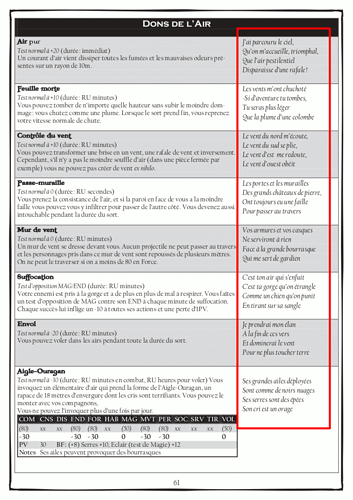About the search skill: My system, which lacks intellectual stats, does have traits representing things characters are good at. Alertness is one of them, and that contributes to searching. So does Second Sight (for invisible things, secret doors, and the like). But there is not a stat for Intelligence. That’s represented by individual traits. A woodsman is “smart” at survival whereas an alchemist is “smart” at identifying potions, to give two examples.
For word-based magic systems, there is Ars Magica’s system as the model. This was the first successful magic system using the verb-noun approach. It came out in 1987. I played it for a year or so in college and the system worked. This was not really a memory-based system, though. So I’d like to distinguish between memory systems and word-based systems (which can overlap).
Issues for word/memory-based magic systems come to mind:
- Which language is used? The language that is the medium of the game (such as English among Anglophone players)? A second language? A conlang (partial or complete)? Invented words with no underlying meaning? A complex order of ritual actions described by the player? Each option would have a different effect and interact with the game world differently.
Also, do the players need to pronounce the words correctly? What is the leeway of error in pronunciation? Who will teach them to pronounce sounds that they do not know natively? Where does mispronouncing verge into just getting it wrong?
- The D&D system (which I dislike) is already, to some degree, a memory-based magic system in that players of spell-users should know the effects of their spells (duration, range, conditions). You could make the burden of memory on players by requiring the players to memorize spell stats/effects to make a spell work, via a momentary quiz. E.g., “You cast fireball? Tell me the precise dimensions of the fireball effects.” If they get it wrong, it doesn’t work or misfires. In other words, you have to memorize your spells’ effects!
I’m still brainstorming on this.

 .
.
